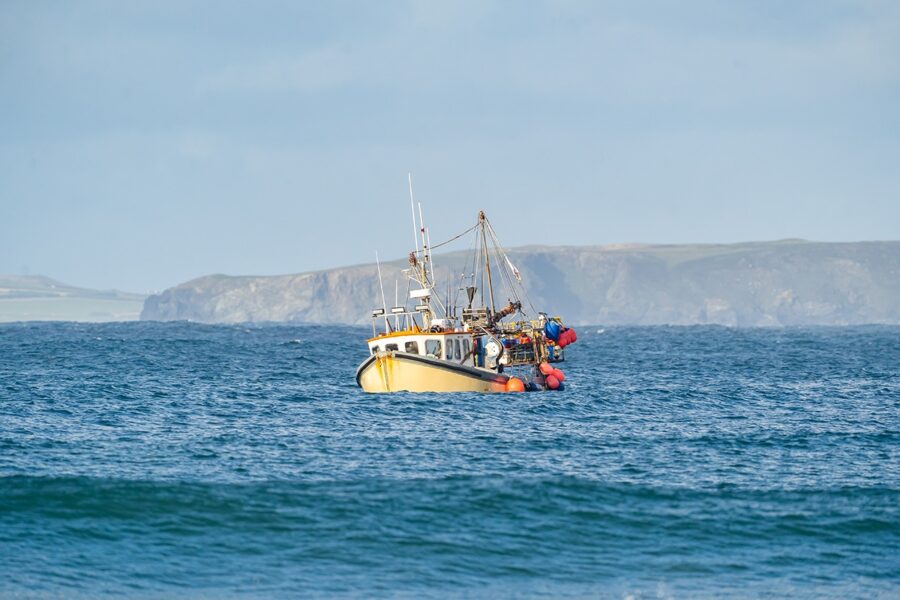Consultation on the Joint Fisheries Statement, which could have huge implications for the UK fishing industry, was opened last week, with a joint press release quoting ministers from the UK government and the three devolved administrations.
A key component of the Fisheries Act 2020, the statement sets out the legally binding fisheries policies that the UK and devolved governments will follow.
The consultation, which runs until 12 April, will require a careful response from the industry. The policy statement will provide a UK framework for delivery of the eight objectives in the act at a UK level and individually, as the UK administrations work together ‘to deliver world-class sustainable fisheries and aquaculture management’.
Environment secretary George Eustice commented: “The Fisheries Act has given us the powers to implement our own independent fisheries policy, improve our marine environment and make decisions based on the health
of our fish stocks and not vested interests.”
Perhaps not surprisingly, comment from the devolved administrations mentioned the scope for devolved fisheries policies, under the umbrella of the act.
Northern Ireland minister Edwin Poots added: “The Fisheries Act 2020 was the first, key milestone for the fishing industry in Northern Ireland as the UK entered a new era as an independent coastal state.
“This draft Joint Fisheries Statement is the next key milestone. It will set out our plans to pursue sustainable fisheries policies that will benefit both the fishing industry and the marine environment for many years to come.”
Mairi Gougeon, the Scottish cabinet secretary for rural affairs and islands, also chose to emphasise the scope for divergent interpretation of the ways to achieve the eight stated aims of the Fisheries Act, saying: “The Joint Fisheries Statement will help us use our devolved powers to secure a sustainable future for the Scottish fishing industry, onshore and offshore, within the context of tackling the twin crises of climate and biodiversity and our commitment to achieve and maintain good environmental status for all of Scotland’s seas.”
Welsh minister Lesley Griffiths added: “The Joint Fisheries Statement reflects the devolved nature of fisheries, whilst recognising the benefits of joined-up working.
“We all want to see fishing and aquaculture industries which are sustainable and environmentally responsible, as well as economically viable and thriving. I now look forward to hearing views on the proposals we have set out.”
Although introduced by all four ministers jointly, plenty of scope exists for implementation of policies, which will lead to divergent impacts for the fishing industry around the British Isles. This may be particularly evident in matters such as quota negotiations and discussions, with potential for disagreements between ministers about which administration will take the lead, particularly with some international negotiations.
In a detailed early analysis of the statement for consideration by NFFO members, chief executive Barrie Deas wrote: “Perhaps the most disturbing aspect of the Joint Fisheries Statement is its relative silence on the role of the fishing industry in shaping its own destiny. Co-management is given a notional mention, but the lack of detail or serious attention speaks volumes.
“The people whose livelihoods are shaped by the policy statement are treated as just one more stakeholder – equivalent to those many groups who merely hold various opinions on fisheries.
“An unwelcome gap between the rulers and the ruled is opening, seen most vividly in relation to policy on highly protected marine areas, but showing also in the UK’s approach to international negotiations, where the industry is largely a bystander.”
The full consultation is available via the gov.uk website. Fishing News will examine the detail, and implications for the industry, in more detail in a future issue.
This story was taken from the latest issue of Fishing News. For more up-to-date and in-depth reports on the UK and Irish commercial fishing sector, subscribe to Fishing News here or buy the latest single issue for just £3.30 here.








